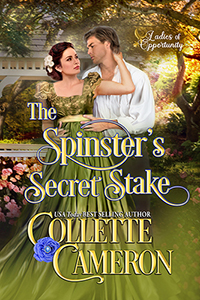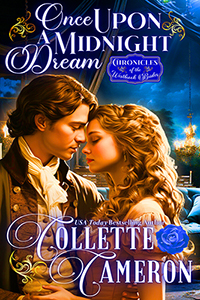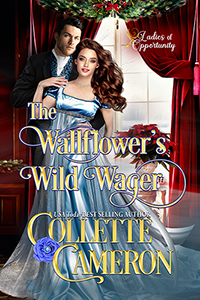Prepare to laugh, snort, and guffaw! Louisa’s outdone herself today.
Your Baby’s Ugly and You Dress Him Funny Too
What Not to Say When Critiquing or Reviewing a Book
By Louisa Cornell
When I was in undergrad school my best friend was Mary Nell Bare. She was known for two things – her hot pink 1966 Thunderbird convertible and her complete lack of tact, especially when it came to fashion. Walking into a crowded common room and asking Mary Nell about some girl’s outfit was tantamount to tossing a steak into a room of hungry Rottweilers. Somebody was coming out of there with a chunk out of her butt and some hair missing.
Which is exactly why I always took Mary Nell with me when I shopped for an evening gown. A typical shopping expedition went something like this :
“How about this one?”
“Oh, hell no! It makes your ass look broad as a barn.”
“My ass is as broad as a barn.”
“I know, honey, but there’s no need to advertise it.”
There are those who say tact is the ability to tell someone to “Go to hell!” and have them look forward to the trip. Sounds right to me. There is a bit more to critiquing or reviewing a book than tact. There is a right way and a wrong way to go about doing either of these. As important as it is to know what to do, it is even more important to know what notto do. Here are a few things you might want to consider. The life you save may be your own.
A critique is rather like an autopsy. You take the pages apart in order to discover what works and what doesn’t. Then you offer suggestions as to how to bring the manuscript back to life. It is important to mention those things in the manuscript that do work. You don’t want the author to tear out a perfectly good kidney only to have you say, “Why’d you do that? That was the best part of the book!” They may come looking for your kidney!
A reviewis more like a Hallmark card. It conveys how the manuscript made you feel. Cards can be happy, sad, boring, funny, confused or just plain blah. The kind of card you pick, especially the wording, conveys how you feel, your impression of the book, and your opinion of the book in general. Cards express sentiments brought on by your reaction to the event, the book. A review is not a critique. You do not get to tear apart every little writing technique and
offer suggestions as to how you would write the book and make it better. When you are a reviewer you are a reader, not a writing professor or a critique partner. A reviewer who decides to become a writing coach is like sending a sympathy card that says :
“Sorry your dog died. You shouldn’t have fed him all of those bratwurst with kraut.”
In writing a review or a critique it is important to convey what didn’t work for you. Be it the
plot, the hero, the heroine, the theme or all of the above. Be specific. Explain why it didn’t
work for you. As a reviewer your job stops there. It didn’t work and here’s why. Period. As a
critiqueryou get to offer suggestions as to how the author might make it work for you. A
reviewer uses words like “I” and “me.”
“This plotline didn’t work for me. It was too convoluted. I didn’t understand it.”
A critiqueruses words like “you” and “maybe.”
“You didn’t wrap this subplot up. Maybe you could insert a few sentences in at the end.”
Words like “I” and “me” show the author and anyone who reads the review the opinions
expressed are those of the reviewer. They aren’t facts. They’re just an opinion. And they help
the author to see the review not as an attack on them, but as the opinion of the reviewer. A
critique is for the author. A review is for the reader. Remember who you are addressing and
word your opinion accordingly.
Words are important. They keep you from getting your shins kicked or your hair pulled out.
3.Excuse me, do I know you?
If I ask you to come to my wedding gown fitting as a critique partner I expect you to tell me what you like about the gown, what you don’t like and what I can add, adjust or take away to make it a perfect fit – the sort of dress people will remember forever. If I ask you to come to my wedding gown fitting as a reviewer I expect you tell me what you like about the gown, what you don’t like and why. Period.
As a critique partner I may choose to ask you to help me refit the gown, choose another gown or just adjust the gown until I am satisfied it is the best it can be. I’m not going to ask a reviewer to do that. I make take any and all of her suggestions into consideration, but there are boundaries in both of these relationships and I expect both the critique partner and the reviewerto respect them. And as personal as a wedding dress is, a writer’s work is even more personal. Remember that.
I don’t expect either of you to chase me down the aisle ripping off flounces and yanking on the
bodice to make my boobs look like Kim Kardashian’s in a selfie. They have a word for people
like that. And a sentence too. Five to life with a deep voiced gal named Boom Boom as your
roommate. I wouldn’t suggest you adjust her boobs without permission either.
If I ask you for a review, give me a review. If I don’t ask you for a review and you decide to give me one, give me a review. Don’t tell me how to rewrite my book in your image even if your Mom says you are the One True Savior of the romance genre. If you are a reviewer you are a reader. All I want to read is your opinion, good or bad, as a reader. It’s also all another reader wants to read. They don’t want to know how a book can be rewritten in excruciating detail. The reader wants to see the magic. If there isn’t any tell them so and move on. No reader wants to know how the magic is done.
4. Oh no you didn’t!
Here are a few more random Don’ts. Failure to adhere to these could get you kicked out of your critique group, drummed out of the reviewers’ corps or dropped in a burlap bag, dumped in the bed of a pickup truck and introduced to an alligator named BAMFA and a hundred or so of his relatives. His relatives are kind of like your in-laws at a family reunion – never in a good mood and always hungry.
Don’t go after an author personally. Don’t attack her intelligence, her character or her morals.
I don’t care if you think she reminds you of the dizzy hooker your brother brought to that
family reunion. As a critiquer or a revieweryou don’t get to say so.
Don’t compare your work to hers. Everyone thinks their baby is beautiful. Maybe yours is. Or
maybe the kid is so ugly he’d make Stevie Wonder flinch. As a critique partner only mention
what works or doesn’t and why and give suggestions if you know how to improve the work.
Suggestions to make the work more like yours are not your job. Reviewer, no. Just NO!
Don’t crucify an author for research mistakes. As a reviewer you might suggest the author
missed some historical facts or rules of behavior. Then shut up about it. As a critiquepartner
you can suggest a reference work to help or you can discover if the writer has decided to fudge
the rules. Then shut up about it. I know the History Police are out there. I’m one of them. I will
not, however, put you in the stocks and throw tomatoes at you if you decide to fudge it.
Whether someone asks for your opinion or not, here is the one thing you should remember. Once you have given that opinion, the author has the right to take some of it, all of it or none of it to heart. Read that line again and again until you fully comprehend it. Your opinion is like a wedding gift. The receiver has the right to display it in the living room, the bathroom or in the closet in the basement. Get over it. If you insist on hounding an author to the ends of the earth until they see your way is the one true way, if you keep asking “why” like a two year old hopped up on Fruit Loops and Juicy Juice eventually you will find yourself sitting in your apartment surrounded by cats and wondering why nobody writes good romance novels anymore. I mean, do you really want to tick off a group of people who know seventeen ways to kill you and make it look like an accident and a dozen ways to dispose of a body without leaving a trace?
Happy Reviewing and Critiquing !














